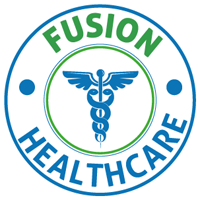Our Thrombotic Risk Panel evaluates critical markers associated with clotting disorders, including:
1. Antithrombin III
Antithrombin III is a natural anticoagulant that helps regulate blood clot formation. Low levels can significantly increase the risk of excessive clotting, particularly in the veins.
2. Factor V Leiden Mutation (Common Variant)
This genetic mutation makes Factor V resistant to inactivation by Protein C, leading to an increased risk of venous thrombosis. We test for the most common form of this mutation.
3. Factor II Prothrombin Mutation (G20210A Common Variant)
A mutation in the prothrombin gene can elevate prothrombin levels in the blood, which can promote inappropriate clot formation.
4. MTHFR Gene Variants (C677T and A1298C)
Mutations in the MTHFR gene can lead to elevated homocysteine levels, a known risk factor for vascular disease and clot formation. We test for the two most common variants associated with thrombotic risk.
5. Fibrinogen
Fibrinogen is a blood protein essential for clot formation. Abnormal levels can indicate an increased risk of bleeding or thrombosis.
6. Lupus Anticoagulant
Despite its name, lupus anticoagulant is an antibody that paradoxically increases clotting risk. It is often associated with autoimmune conditions and is a key marker for antiphospholipid syndrome (APS).
7. Protein C
Protein C is a natural anticoagulant that works with Protein S to prevent excessive clotting. Deficiency can lead to an increased risk of developing dangerous blood clots.
8. Protein S
Protein S acts as a cofactor to Protein C. A deficiency in Protein S disrupts the body’s natural anticoagulant pathways, further raising the risk of clot formation.
9. Anticardiolipin Antibodies
These antibodies target phospholipids in the blood, leading to increased clotting risk. High levels are associated with antiphospholipid syndrome and recurrent pregnancy loss.



